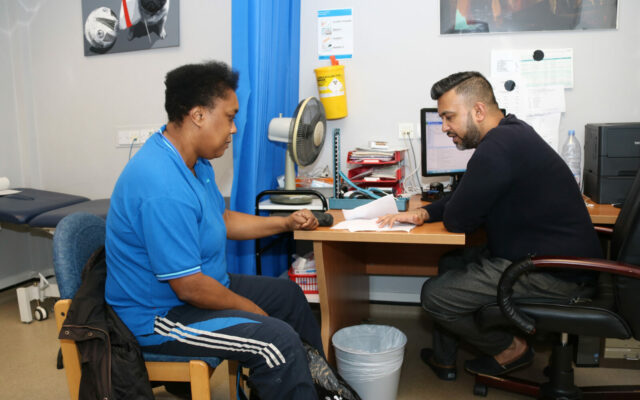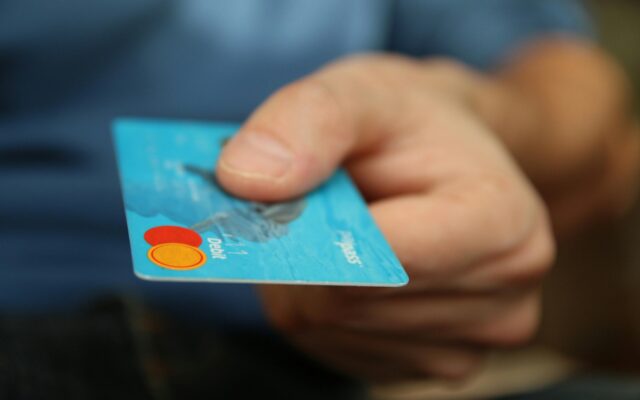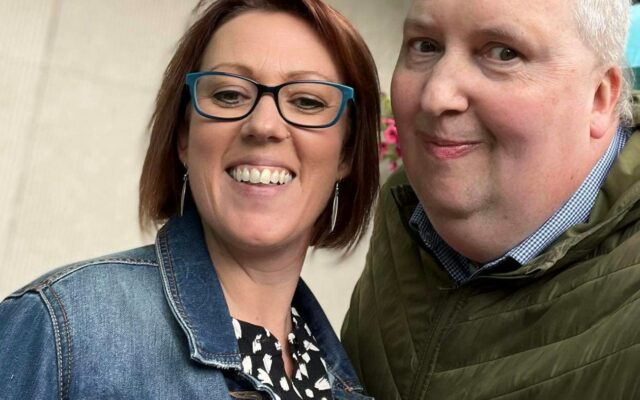A determined advocate
Jackie Downer MBE has spent much of her life supporting other people with learning disabilities, as an advocate and through working for People First. She tells Sean Kelly about being strong, the importance of work and setting examples to make integration normal
Jackie Downer’s commitment to change is well caught in her questions: ‘Are we really making a difference? How do we know? What can we do to do better?’
Despite these comments – quoted on the website of learning disability training and development agency Paradigm – Downer is modest. ‘I describe myself as an OK person, being nice to people, beng fair, and trying to help people with learning disabilities in the community, and other people as well. Trying to change the support for people with learning disabilities. I am an advocate. I’ve been doing it for many years now – 20 years.’
She is accompanied by a support worker, who says: ‘You’ve been doing it since you were aware of the need to change things.’
Downer remembers becoming aware of the need for change at an early stage. “I remember going to college in Lewisham and this person had learning disabilities and I was trying to support her and she was just holding my neck. I thought she was going to wring my neck off.
“And I realised that people with learning disabilities have got a right to do what they can do. She couldn’t use verbal communication …. but she could communicate in her own different way. The way she was wringing my neck … She never meant to wring my neck. I said she’s got a right to be here like anybody else. She just communicates in a different way.”
Downer went on to work for People First and other advocacy groups then became a national self-advocate and consultant.
As a black woman with learning disabilities, she has had to be strong: “I have tried to be strong but I was working for an organisation and they were not very nice. Some workers are not nice and it can affect you.
“I found some strength to carry on because now I am working for other organisations. They are giving me a chance to say I can work and I can do things – like working for Unicorn Theatre and doing childcare. Working makes the difference in people’s lives. It has definitely made a difference in my life.”
Her support worker highlights that Downer was the first person with learning disabilities employed by Unicorn Theatre and this set a trend – they have employed others since.
Downer grins: “I am so happy. We have people with Down’s syndrome. All kinds of people work there. It is people with learning disabilities and people without. We are mixed. And the public can see that.”
She also works as a childcare assistant but she is disappointed that she lost her Access to Work support. “They took away the money. It was horrible to lose the support. What did I do?”
Her worker explains that her earnings did not meet the threshold and that she had been receiving support for nearly 20 years. “But what can I do?” says Downer, “It’s not my money.”
Her other work includes coauthoring Books Beyond Words publications such as Speaking Up For Myself and Keeping Healthy Down Below and she is working on a new book with them. She finds Books Beyond Words are good to work with: “They involve people with learning disabilities from day one.”
Downer is not doing any other work with or for people with learning disabilities at the moment. “I am not in the movement like I used to be. The work is not there. And I am not pushing myself like I used to. Things change,” she says, before adding: “I am doing other things. I am a childcare assistant. The person believed in me and gave me a job.”
Awards
Downer has received some major recognition for her work, including an MBE, awarded for ‘supporting people with learning disabilities in London’. She also has lifetime membership of Learning Disability England which similarly recognised her outstanding work.
 Downer was given lifetime membership of Learning Disability England for her outstanding work
Downer was given lifetime membership of Learning Disability England for her outstanding work
“Yes I was happy with that,” she says and then adds, with her usual modesty, “I was just being myself, being Jackie, and campaigning for people with learning disabilities.”
Does she thinks things are getting better or worse for people with learning disabilities? “It’s getting worse in some respects, because of the cuts. The youth service, elderly, ethnic minorities and people with learning disabilities – the funding is not there for anybody. I think it’s harder for everybody.
“The funding is not there like it used to be – like for People First, advocacy, and they used to go out and do things”.
She still feels positive, though. “People with learning disabilities give me hope, because people are doing things. We’re out on the street and we’re doing various things and I think employment is getting better. I have got employment and I mix with other people.
“I can do certain things and certain things I can’t do. Like with the Unicorn Theatre, I know that some people with learning disabilities can’t do the till but we can do other things.
 “And when I see that, when I see people integrating, it gives me hope. My support workers and other family members give me hope as well. I achieved certain things and I need to learn from my achievement but I am happy.”
“And when I see that, when I see people integrating, it gives me hope. My support workers and other family members give me hope as well. I achieved certain things and I need to learn from my achievement but I am happy.”
“Working makes the difference in people’s lives.
It has definitely made a difference in my life”
Benefit blues
Before this interview, Downer said she wanted to talk about her experiences with universal credit. “All I can say is they don’t know what they are doing. How can you go to two doctor’s appointments?” she says.
Her support worker explains she underwent two assessments in error and there were problems in how she was given information about her benefits assessment. Despite having received an apology from the Department for Work & Pensions, Downer is still waiting for an appeal hearing almost a year later.
Universal credit nearly broke her down. “I was crying on the phone. How can somebody say, ‘We are going to stop your benefits’ while I am crying on the phone?” Meanwhile, her housing benefit is discretionary, which is another concern.
It does grind you down,” she says. “You get depressed. They have got the power. What can you do?
“And who makes the money at the end of the day? Not the people with all kinds of physical disabilities or mental health or anything. The doctors that see you are getting £60 or £70. They are making the money.”
Her small team of support workers, some voluntary and some funded, are ‘a lifeline’. She recognises they too have needs: “They have all got their own different kinds of need and different kinds of ability but definitely they are 100% and I am so happy. Some of them are young and some of them are older and they are really good.”
Downer mentions one of the staff in the local job centre who has also been supportive.
Does she think people are more aware of those with learning disabilities than used to be the case?
“I think so. I think it’s getting better. I see people doing more things now and going out in the community more. And doing activities and working. Before, we never used to do that. I know certain people are doing the [supermarket] trolleys still … but they are still working.”
Another chapter
Downer says she and others her age, are looking forward to the next phase in their lives. She means getting older.
“Our bodies are changing. It’s another chapter. Are we going in a care home? That’s the future. That’s the finishing off.”
As a part-time worker, she worries about getting a pension. However, she recognises she has done better than many of her peers. “Some of my friends haven’t worked since they left school.”
For a message, she recommends the song Something Inside So Strong by Labi Siffre. “If you listen to that, you will continue going on with what you’re going on,” she says. “The words say it all. It makes people strong. Anytime I think about it, I take the courage.”
As Siffre suggests, people should grow taller if others build barriers, and respond to their rights being taken away by running even faster, driven by an inner strength. It is certainly what Jackie Downer has done for her whole life.
Sean Kelly was chief executive of the Elfrida Society from 2001 to 2012 and is now a freelance writer and photographer






